
Renal Function Test
About Renal Function Test
A Kidney Function Test (KFT test), also called a Renal Function Test (RFT), is one of the most important diagnostic tests used to assess how well your kidneys are working. The KFT test / RFT includes both blood and urine analysis to evaluate kidney health.
The Kidney Function Test (KFT test) measures important parameters such as urea, creatinine, uric acid, proteins, and electrolytes in the blood, while the Renal Function Test (RFT) also checks urine for abnormalities such as the presence of proteins, red blood cells, or bacteria. Doctors recommend the KFT test / RFT for patients at risk of kidney disease, especially those with diabetes, hypertension, or a family history of kidney disorders.
At Lupin Diagnostics, you can easily book Kidney Function Test online, book KFT test online, or book Renal Function Test online / book RFT test online. You also get complete transparency on the Kidney Function Test (KFT) price and Renal Function Test (RFT) price before scheduling your test.
Functions of Kidneys
The Kidney Function Test (KFT test) or Renal Function Test (RFT) evaluates whether your kidneys are performing their vital roles properly. The kidneys are responsible for:
- Filtering waste products and toxins from the blood.
- Regulating fluid and electrolyte balance in the body.
- Maintaining blood pressure by regulating salt and fluid levels.
- Producing hormones essential for red blood cell production and bone strength.
- Balancing pH levels in the blood.
When these functions are impaired, it shows up in the KFT test / RFT results. Early detection through a Kidney Function Test helps in timely management of kidney disorders. Patients can conveniently book Kidney Function Test online or book Renal Function Test online with Lupin Diagnostics at an affordable KFT test price
What is the Renal Function test used for?
The renal function test is used to:
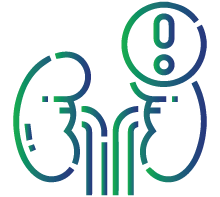
Diagnose kidney disease
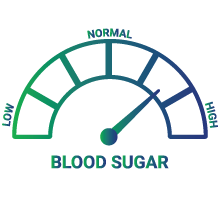
Determine risks associated with diabetes

Determine risks associated with hypertension
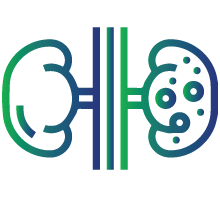
Diagnose other chronic kidney diseases
Who should get tested?
A renal function test is recommended to diagnose and treat disorders that affect the functioning of the kidneys. Other health conditions like diabetes and blood pressure also affect the kidneys. Renal function test can be recommended for individuals who are/have:

Age Over 60 years and above
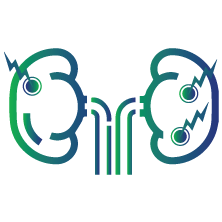
Abnormal Kidney Structure

Family history of kidney diseases
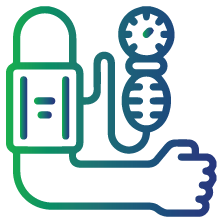
High blood Pressure
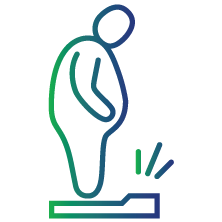
Overweight or obese
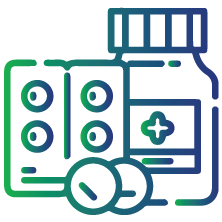
Use of medications that damage the Kidney
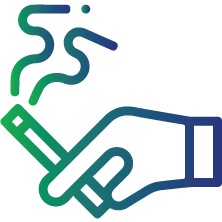
Smoke cigarettes
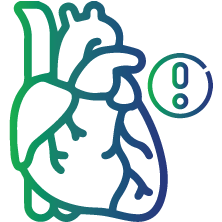
Other heart/cardiovascular diseases
Test preparation
The Kidney Function Test (KFT test) / Renal Function Test (RFT) usually involves both a blood sample and a urine sample.
- Blood sample: Collected in the lab to measure serum creatinine, urea, and other kidney function parameters.
- 24-hour urine collection: The patient is asked to collect urine for 24 hours in a container provided by the lab. This helps in analyzing proteins, creatinine clearance, and other urine abnormalities.
There are no major dietary restrictions, but it is recommended to inform your doctor about any medications or supplements you take. When you book KFT test online or book RFT test online with Lupin Diagnostics, you will get detailed instructions. You can also view the Kidney Function Test (KFT) price and Renal Function Test (RFT) price before proceeding.
Interpretation of results
|
Parameters |
Normal levels |
|
Estimated GFR (eGFR) |
Greater than 90 mL/min/1.73 m2 |
|
Serum creatinine |
0.6–1.1 mg/dL in women and 0.7–1.3 mg/dL in men |
|
Blood urea nitrogen (BUN) |
7–20 mg/dL |
|
Microalbuminuria |
Less than 30 mg |
|
Albumin-Creatinine Ratio |
Less than 30 mg per gram. |
|
Creatinine clearance |
88–128 mL/min – healthy women 97–137 mL/min – healthy men. |
|
Urinalysis |
|
|
Parameters |
Normal values |
|
Color |
Colorless to yellow color |
|
Appearance |
Clear or translucent |
|
pH |
4.5-5.5 |
|
Microscopic examination |
Negative |
|
Dipstick test |
Negative |
|
Urine culture |
Negative |
Deviation from Normal Levels
- Low eGFR: Indicates stages of chronic kidney disease.
- High creatinine and BUN: Suggest kidney damage or kidney failure.
- High albumin levels in urine: Signal kidney disease in diabetics and hypertensive patients.
- Abnormal urine pH or presence of crystals: May indicate kidney stones or urinary tract infections.
- Presence of blood, bacteria, or protein in urine: Sign of kidney infections or kidney disease.
Routine monitoring with the Kidney Function Test (KFT test) / Renal Function Test (RFT) is critical. At Lupin Diagnostics, you can book Kidney Function Test online and check the KFT test price or RFT test price before booking.
FAQs
What is the turnaround time (TAT) for Kidney Function Test (KFT test) / Renal Function Test (RFT) results?
The Kidney Function Test (KFT test) or Renal Function Test (RFT) results are usually available within 1–2 working days. In some cases, it may take longer depending on the type of analysis. By choosing Lupin Diagnostics, you can book Kidney Function Test online or book RFT test online and receive quick and accurate results with full clarity on the Kidney Function Test (KFT) price or Renal Function Test (RFT) price.
What are the risks associated with a Kidney Function Test (KFT test) / Renal Function Test (RFT)?
The KFT test / RFT is very safe and involves minimal risk. A small blood sample is taken, which may cause mild bruising, dizziness, or discomfort. The 24-hour urine collection is completely non-invasive. Patients who book KFT test online or book Renal Function Test online at Lupin Diagnostics benefit from strict safety protocols, ensuring reliable results at a reasonable KFT test price.
Can any factors influence the accuracy of Kidney Function Test (KFT test) / Renal Function Test (RFT) results?
Yes, lifestyle factors such as a high-protein diet, intense physical activity, or dehydration may influence KFT test / RFT results. Certain medications may also alter kidney parameters. Always inform your doctor about your medical history before undergoing a Kidney Function Test. Affordable Kidney Function Test (KFT) price and Renal Function Test (RFT) price options at Lupin Diagnostics make repeat testing easy if required.
What should you do if you have an abnormal Kidney Function Test (KFT test) / Renal Function Test (RFT) result?
Abnormal KFT test / RFT results may indicate low eGFR, high creatinine, or high BUN levels, signs of kidney disease. They may also indicate malnutrition, severe muscle loss, or chronic illness. Your healthcare provider will interpret results based on your age, medical history, and medications. If your results are abnormal, it is important to book Kidney Function Test online or book RFT test online regularly to monitor progress.
What precautions can be taken to maintain normal Kidney Function Test (KFT test) / Renal Function Test (RFT) results?
Maintaining kidney health requires lifestyle changes such as reducing salt intake, limiting red meat, staying hydrated, avoiding smoking, exercising regularly, and eating a balanced diet. Regular monitoring with the Kidney Function Test (KFT test) / Renal Function Test (RFT) is key to preventing kidney disease. Patients can conveniently book Kidney Function Test online and check the KFT test price or RFT test price at Lupin Diagnostics before booking.
How much does a Kidney Function Test (KFT test) / Renal Function Test (RFT) cost?
The Kidney Function Test (KFT) price and Renal Function Test (RFT) price at Lupin Diagnostics are kept affordable for all patients. Prices may vary slightly based on location, but transparency is always maintained. Patients can view the KFT test price and RFT test price before booking to avoid any confusion.
Can I book a Kidney Function Test (KFT test) / Renal Function Test (RFT) online at Lupin Diagnostics?
Yes, you can easily book Kidney Function Test online, book KFT test online, book Renal Function Test online, or book RFT test online at Lupin Diagnostics. Options include visiting the nearest center or opting for home sample collection. Clear reports and affordable KFT test price / RFT test price ensure complete peace of mind.

